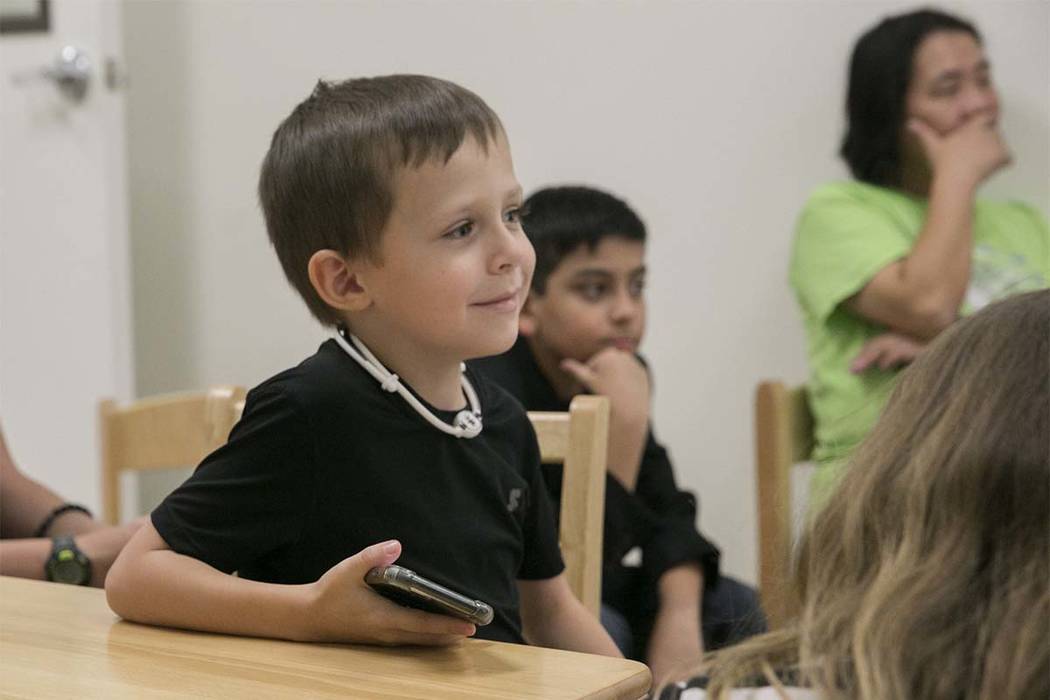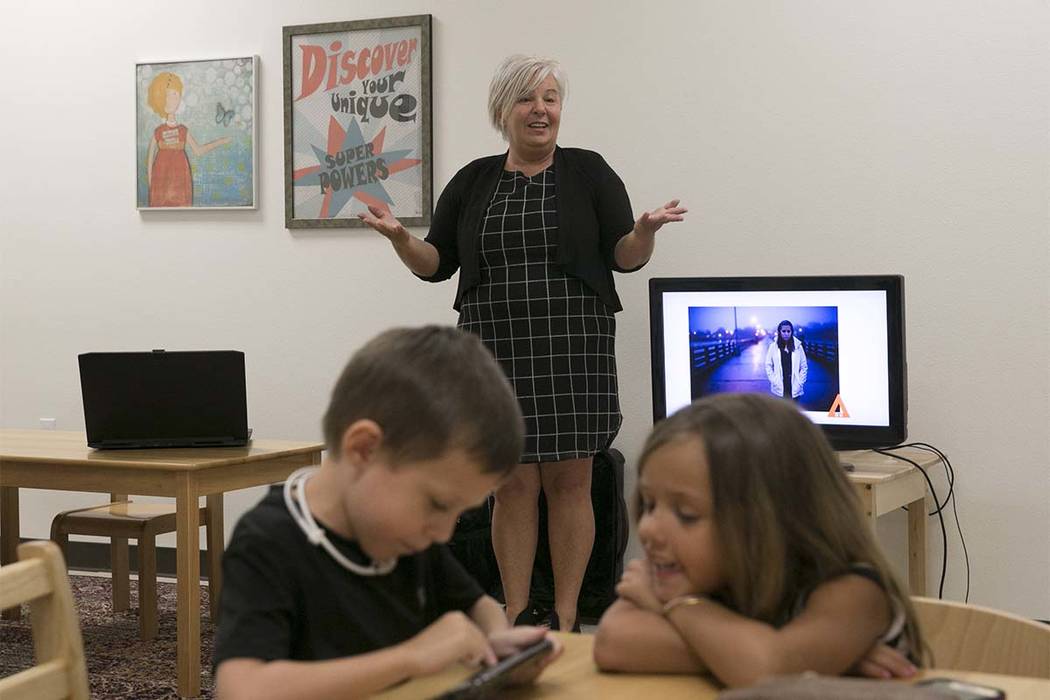Digital parenting means teaching responsibility to kids
On Thursday evening, parents and children were seated inside The Learning House of Las Vegas, an educational center on West Twain Avenue, waiting for the digital parenting class to begin. Five-year-old Lucas Gonzalez kept busy by playing games on an iPhone. A mother sat a few feet away, her eyes focused on her phone’s screen. Other smartphones could be seen sitting atop the table.
This access to technology is something Katy Toma noticed with her own 13-year-old son, Eric Lassard. To help parents raise their children in an age filled with so many portals to the internet, Katy has begun offering free digital parenting classes.
The class’ main objective is to teach parents how to raise their kids and keep them safe when access to the internet is so easy. The class is based on information Toma, the co-founder and facilitator of Kidscademics, a company that introduces kids to technology, coding and internet safety, has gathered after five years of fieldwork and interviews with parents.
Starting young
Toma said today’s parents are the first to raise children in such an internet-fueled age, making their roles even more difficult.
“We are a generation of parents who are not educated in what to do,” she said. “The old kind of way of parenting, you can’t do that with these kids. They were born in a world of technology.”
And their exposure to the internet starts early, Toma said, oftentimes before parents realize it.
“They are like 11 months old when parents usually hand their mobile phones to them, bribing them for a few minutes of silence,” she said. “What parents don’t realize at that moment is that these kids are on the internet highway. They Google, YouTube, they search for movies.”
David Hill, chair of the American Academy of Pediatrics’ council on communications and media, said while a small amount of device usage isn’t harmful to infants, there is a limit.
“If (the parent gives the child a device) to get a couple minutes to use the bathroom and get privacy, it’s probably not terribly damaging,” Hill said.
The real problems arise when the devices start distracting children from important developmental moments, like time spent playing outside or interacting with their parents.
“Those younger than 18 months learn everything from their parents,” Hill said. “A device is a distraction from that.”
Limiting access
Hill said it’s tempting for parents to give their children an iPad to play with when they’re being unruly at a dinner table, but that decision doesn’t build important regulatory skills in children.
“You have to remind kids to take their elbows off the table and say thank you,” Hill said. “It’s harder work. It’s easy to pop them in front of a screen.”
Hill said it’s up to the parent to facilitate their child’s usage with these devices.
“You want to help them learn it responsibly,” he said. “Kids enjoy these things, they’re very stimulating. They want lots of them, in the same way they want lots of candy … our job as parents is often to help kids with limit setting, because no one is naturally good at it.”
Building trust
The best way parents can ensure that their children are safe online, Toma said, is to build trust with them, something that requires consistency and time.
One of the most important things for parents to realize is that they can’t stop their children from using the internet; it plays too large a role in their lives today, according to Toma. Instead of banning their children from technology or using parental blocks, she said parents should instead work with their children and have conversations on boundaries on the internet.
“We cannot stop them. They need this interaction with the internet,” she said. “Instead, meet them there … Play games together. See who they play with, what they play and how they think about it.”
Devorah Heitner, the founder of Raising Digital Natives, a resource offering parents and educators advice on helping children thrive in the digital world, and author of “Screenwise,” agrees.
“I think we want to be really thoughtful on how we use technology and the way that we model,” she said. “We need to mentor them … if they’re playing an online game for the first time, you need to talk about how people act in those spaces.”
One of the class attendees, Genesis Gonzalez, 12, said she’s learning how to put away her devices in certain situations.
“I’m learning about taking time away from electronics to have family time,” she said.
Toma said the internet and technology is doing amazing things for children. But, she said, “they have to understand how to use them and not abuse them.”
Contact Bailey Schulz at bschulz@reviewjournal.com or 702-383-0256. Follow @bailey_schulz on Twitter.
The next free digital parenting classes will be held at Kids Time Las Vegas (7260 South Cimarron Road, #100, Las Vegas) on July 28 at 12:30 p.m. Toma's digital parenting book is available for free on the Kidscademic's website.

































